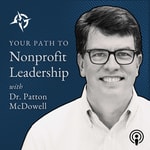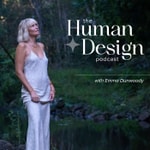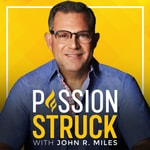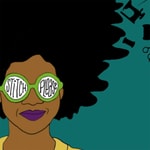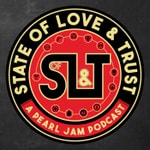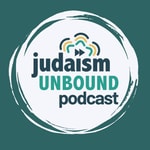Jew-ish – Details, episodes & analysis
Podcast details
Technical and general information from the podcast's RSS feed.
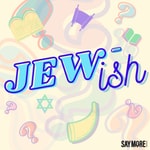
Jew-ish
Say More Network
Frequency: 1 episode/30d. Total Eps: 27

What is being "Jewish"? What are Jews? What do Jews believe? What do Jews do? What's happening in those mysterious synagogues with all that weird language (it's Hebrew)?
Jew curious?
The thing about being Jewish is, you can't tell us apart by looking (well, not always), we often look the same, dress the same, work and play and eat right alongside our non-Jewish counterparts, and yet, as a teeny tiny minority--only 0.2% of the global population, and 2-3% of the U.S. population--plenty of people have probably never met a Jewish person, or if they did, they didn't even know it.
For as much as we share (and it's probably way more than you think), somehow, moving through the world as a Jew really is different. Everything looks different through a Jewish lens, even for those who aren't particularly religious, the ones who describe themselves as "Jew-ish."
But honestly, none of this is really that mysterious. And, if you're curious or confused, you can always just ask the internet--or, now you can also come here and check in with your new Jewish friend.
So, if you have questions about being Jewish, we're here to introduce, explain, ask alongside, and generally demystify Judaism for Members of the Tribe (Jews) and goyim (non-Jews) alike, exploring and showcasing the infinite ways there are to be Jewish.
Recent rankings
Latest chart positions across Apple Podcasts and Spotify rankings.
Apple Podcasts
🇨🇦 Canada - spirituality
04/08/2025#42🇨🇦 Canada - spirituality
03/08/2025#84🇨🇦 Canada - spirituality
24/07/2025#94🇩🇪 Germany - spirituality
08/07/2025#84🇩🇪 Germany - spirituality
05/07/2025#95🇩🇪 Germany - spirituality
04/07/2025#67🇩🇪 Germany - spirituality
03/07/2025#40🇩🇪 Germany - spirituality
08/06/2025#96🇩🇪 Germany - spirituality
07/06/2025#52🇨🇦 Canada - spirituality
22/04/2025#63
Spotify
No recent rankings available
Shared links between episodes and podcasts
Links found in episode descriptions and other podcasts that share them.
See allRSS feed quality and score
Technical evaluation of the podcast's RSS feed quality and structure.
See allScore global : 83%
Publication history
Monthly episode publishing history over the past years.
Mysticism and Judaism and dreams, oh my!
Season 2 · Episode 7
jeudi 22 août 2024 • Duration 52:03
Growing up Conservative Jewish in Ohio, Rabbi Cantor Judy Greenfeld turned away from her family traditions after her beloved father was murdered. Judaism became an unbearably painful reminder of her loss, and she became a "seeker" of other spiritual pathways as she tried to outrun her mourning. She explored, Buddhism, dance, holistic medicine, and psychology. Eventually, she found her way through dreams and mysticism back to Judaism, embracing traditions like Kabbalah, back to the religion and community she was born into, and discovered she had never really left.
In her books, she uses her unique interpretations and experiences to make Jewish traditions accessible for anyone, offering practices and prayers to make the day to day business of living just a little bit easier for everyone.
GLOSSARY:
Zionism: A political movement founded by Theodor Herzl in the 1890s to create a Jewish homeland, based in an assimilationist philosophy and cemented by antisemitic incidents like the Dreyfus affair (the false accusation and imprisonment of a French Jewish military officer that came to symbolize Jews' supposed disloyalty).
Tzitzit: The dangling fringe of the Jewish prayer shawl, called a tallit.
Ma tovu: Traditionally said in morning prayers or, for Ashkenazic Jews, upon entering the synagogue, the first lines of the prayer for which it is named mean: "How good are your tents O Jacob, your dwellings O Israel."
Sitting Shiva: From the Hebrew word for seven, sheva, the tradition of mourning for seven days including customs like sitting low to the ground and covering mirrors, bringing the family of the deceased food, and sitting with them, in silence if they want.
La dor va dor: Meaning "from generation to generation," also translated as "forever."
Philological study: Text study using grammar, style and language to analyze meaning and origin.
Pardes: An acronym (Heb. פַּרְדֵ״ס) usually associated with Kabbalah that denotes a specific type of critical text interpretation
Kabbalah: A form of Jewish mysticism that became widespread in Provence and Spain in the 12th and 13th centuries.
Gematria: A numerology system using the numbers which are assigned to Hebrew letters (Hebrew letters are also used as numbers)
LINKS ETC: On the idea of prayer replacing “sacrifice”: It is thought that after the destruction of the Second Temple in Jerusalem in 70 CE and expulsion of the Jews from Israel that without a central place to make animal sacrifices, the disparate surviving Jewish communities came to see prayer as the new form of sacrifice and "work" (avodah in Hebrew) acceptable to God.
Don’t be afraid of the dark, that’s where creation begins
Season 2 · Episode 6
mercredi 7 août 2024 • Duration 51:25
We all know "in the beginning, there was darkness," right? The first line of the first book of the Old Testament (AKA the Torah). But did you know, there was also “chaos and void”? And then, of course, God created everything. So we're told.
Inspired by the places where "creation" began, Rabbi Adina Allen has made a life and a practice of understanding how all creation and creativity–whether art, new understandings, or life itself–comes from darkness, chaos and void, and how these acts of creation heal us.
In her book, "The Place Of All Possibility," Rabbi Allen blends creativity, Torah study, and the open studio art therapy approach she learned at her mother's Open Studio Project to offer a practical guide to inspired creative practice.
But, like this show, the book is not for people of a single tradition or faith, it’s to demystify for and offer to all of us how curiosity, wonder, joy, creativity and healing are accessible, and challenge us to see that when we wrestle with darkness, ideas we already hold, or texts, or artwork, or family or the divisiveness and polarization of a moment, we can find something new in them, and in ourselves, and maybe even start to heal.
GLOSSARY
Shechinah: Also transliterated "Shekhinah," Hebrew for "dwelling" or "settling." Is generally used to refer to the presence of God, and in Jewish mysticism, Kabbalah, connotes the divine feminine attributes of God.
Chevrutah: From the Hebrew for "friendship," it is also used to refer to a group who studies together.
Beit Midrash: From "beit" or "bet" in Hebrew meaning "house" and "drash" meaning "inquiry" or "study", the phrase refers to a designated area for the group study of Torah, AKA "study hall."
B’reisheet: Meaning “in the beginning,” it is the first word in the Torah, and starts the first of the Five Books, also called Genesis.
Tohu va'vohu: A Hebrew phrase appearing in the second verse of Genesis, meaning "chaos and void," or "formless and void."
The Shema: Named for the first word, which means “listen,” or “hear,” this is the central prayer in Judaism and is generally translated: “Hear, oh Israel, the Lord is our God, the Lord is One.”
Yisrael: Hebrew for “Israel,” the name given to Jacob after wrestling with an angel and being left with a permanent limp, translates literally as “One who Struggles with God.”
Talmud: The central book of law in Judaism comprising the Mishnah and Gemarah, containing centuries of rabbinic opinions.
MORE:
Jewish Studio Project
The Sabbath (Shabbat) Bride
Viktor Frankl: The Holocaust survivor and author is perhaps best known for "Man's Search for Meaning," but is also a philosopher and founder of the logotheraphy school of psychology.
The Blind Men and the Elephant
From the Jewish book of law known as the Mishnah Sanhedrin, one passage famously equates saving a life with saving the world: “Whoever saves a single life is considered by scripture to have saved the whole
Leaving the Mormon Church and becoming an “asker”
Season 1 · Episode 10
vendredi 6 octobre 2023 • Duration 53:04
Erick Cloward was raised in the Mormon Church in Utah, in a not-always-happy home. He talks about it a lot on his podcast, The Stoic Coffee Break (which is an absolute must-subscribe, by the way) and the parts of that culture that eventually led him to leave the church, and Utah altogether. In episode 181 of his show, he digs into "asking" vs. "guessing" culture, and the contrast between what was the norm in his lived experience in the Church of Latter-day Saints, and cultures—dare I say, like Judaism??—that normalize directness. I immediately saw myself, and reflections of a million little skirmishes I've had over the years in that episode, and naturally had a million things to ask, got cheeky, and emailed him. Our conversation reflects on what "asking" vs "guessing" culture means, how it manifests, different approaches and why such things might exist. And of course, I peppered him with a bunch of questions he should not have been tasked with answering, but graciously did anyway. Thank you so much, Erick, for giving this wee podcast a bit of your Big Deal Podcaster time!
Make sure you also check out his episode on being a people pleaser, which we also talk about in this episode!
GLOSSARY:
Glasnost Perestroika: meaning “openness” and “restructuring,” this was a period of reforms at the end of the Soviet era initiated by Mikhail Gorbachev after becoming head of the Communist Party in 1985.
Midrash: both a noun and a verb, midrash means commentary (or commenting) on aspects of Jewish law or scripture. Interpretations from rabbis over the centuries have been gathered into a collection of writings often referenced to help understand or give depth of meaning to readings in the Torah or Jewish law.
Pesach: the Hebrew name for Passover, the ritual meal which commemorates the Exodus from Egypt, when Jews followed Moses out of slavery after the Ten Plagues.
Happy Jew Year! What does Rosh Hashanah and Yom Kippur mean, and what to do.
Season 1 · Episode 9
jeudi 21 septembre 2023 • Duration 41:05
Rosh Hashanah is the Jewish New Year, followed by Yom Kippur, the Day of Atonement, and together with the 10 days of deep contemplation between them, they are known as the Days of Awe, or the High Holy Days–but apparently only in the U.S. Also–spoiler alert!--it’s not the actual “new year” on the Jewish calendar. Or at least not since ancient times…but we’ll get into all that. This episode is here to help, you, me, whoever, understand how to “do” Rosh Hashanah and Yom Kippur, or just a bit more about them. Listen in to learn what to say and not say to your Jewish friends, a short list of sins you should be thinking about, and some of the ways our oddball family approaches the major themes and responsibilities of the season, including repentance, reflection, forgiveness, celebration (or not).
GLOSSARY
Chag Sameach: Translates to “Happy Holiday”, the generic expression to share well-wishes on any holiday.
Talmudic period: Referring to the time between approximately 64-70 and 500-640 CE, beginning with the first Jewish revolt against Roman rule and including the destruction of Jerusalem and the Second Temple that resulted in the exile of the Jews, and the eventual rise of great rabbis such as Akiva and Hillel, whose writings, along with other scholars of this period, were eventually compiled into the Mishnah and Gemara, which, together, comprise the Jewish book of law known as the Talmud. During this period, Hillel also created the lunar Jewish calendar commonly used today.
Yom Hazikaron: Translates to “Day of Remembrance” and is observed in Israel to remember fallen soldiers, in the same way as Memorial Day in the U.S. is.
Yom ha'atzmaut: Israeli Independence Day
Madrichim: Translated as “teachers,” “leaders,” or “guides,” madrichim are generally teenagers trained in Jewish leadership programs.
Sitting Shiva: The practice of mourning death for seven days including customs such as sitting low to the ground and covering mirrors, during which the immediate family of the deceased receives guests to care for and bring them food so they can sit and be present in their grief.
Machzor: A Jewish prayer book arranged in specific liturgical order for the High Holidays.
Shulchan Aruch: The Jewish legal code compiled in the 1500s by Sephardic rabbi Joseph Caro.
Mitzvot: Often translated as “good deeds,” the word actually means “commandments.”
Shofar: The horn of a kosher animal, often a ram, ceremonially blown on Rosh Hashanah and Yom Kippur.
More:
Check out the Stoic Coffee Break on your favorite podcast app and listen for Erick Cloward's episode on Jew-ish!
What does "culturally Jewish" even mean
Season 1 · Episode 8
jeudi 7 septembre 2023 • Duration 45:45
Finally, the basic question: What is being “culturally Jewish”? Getting at the difference between a culture and religion, how identity manifests in modernity and how it came to be this way is heady stuff, and of course, in true Jewish fashion, the answer is: it’s complicated. Thank goodness for my brilliant baby brother, Zeb, who is a professional Jewish educator like my mom, but also a largely secular Jew, like me, and his specialty in and nuanced thinking about modern Western Jewish history. Some light topics up for discussion include: the birth of nation-states, assimilationism, responses to modernity, what “identity” means, and how, lucky us, we came to be part of the "global cabal." Don't worry, there's plenty of snark too, this ain't grad school! Also, love you Mom, sorry in advance! Tons of terminology in this one, so hit the glossary below, and check previous episode notes for more.
GLOSSARY:
Rebbe: Largely used by Hasidic Jews, a Yiddish-German term for "rabbi," also referring to a person educated in and who educates, guides or mentors others in Judaism.
Assimilationism: The act or desire to be absorbed culturally and socially into the dominant or majority group.
Zionism: A political movement founded by Theodor Herzl in the 1890s to create a Jewish homeland, based in an assimilationist philosophy and cemented by antisemitic incidents like the Dreyfus affair (the false accusation and imprisonment of a French Jewish military officer that came to symbolize Jews' supposed disloyalty).
Ghetto: Likely derived from Italian, in the early 1500s it referred to the area of Venice where the Jews were required by law to live. It is most broadly used in the Jewish to refer to the walled-in parts of cities where Jews were imprisoned under Nazi occupation, often before being sent to death camps.
Humanism: A philosophical approach with a long history, generally centered on placing importance of the human experience, and well-being of humankind over deities or states.
Haskala: A late 18th- and early 19th-century European Jewish intellectual school of thought integrating Judaism and modern European life.
Yiddish: Translated to mean "Jewish" in Yiddish, a German-derived dialect integrating Hebrew and parts of the local language generally considered the language of Askenazic Jewish communities in central and eastern Europe. Yiddishkeit: a Yiddish word describing a quality of "Jewishness."
Ladino: Sometimes called Judeo-Spanish, it has Castilian origins and is considered the language of Sephardic Jews, who originate in Spain and Portugal, but blends broad languages including Arabic or Greek.
Nebbish: Yiddish for a meek, pitiful person.
Freedom Seder: https://religiondispatches.org/take-history-into-your-own-hands-why-i-wrote-the-freedom-seder-and-why-its-still-necessary/
Reform Movement: https://www.myjewishlearning.com/article/reform-judaism/
Pale of Settlement: https://www.jewishvirtuallibrary.org/the-pale-of-settlement
From lawyerin' to clownin', a Jew-ish journey
Season 1 · Episode 7
jeudi 24 août 2023 • Duration 30:32
Robert Markowitz was a nice Jewish boy just trying to do what he thought he was supposed to, building on the legacy of his immigrant grandfather to rise to fulfill his mother’s dream of becoming a lawyer. But, like many of us who do things ultimately for others, he discovered it made him absolutely miserable.
So, he swung the pendulum all the way from being a super-serious lawyer to becoming a literal clown. He says that started a thaw that allowed him to “feel” again, and resurrected his inner child. Despite thinking he “wasn’t that Jewish," he says in the end, it was Jewish themes that interest him, like redemption, or “teshuva,” which means to “return.” His own journey of teshuva allowed Robert to rediscover how to seek and spread joy. He became a children’s musician and then a writer, and has a novel about a lawyer who left lawyering to save his soul, called…."Clown Shoes” of course. What else?
Glossary:
Shyster: often defined simply as meaning an unscrupulous scam artist or unprofessional lawyer, the term is generally used as–and therefore has taken on the meaning of–an antisemitic slur or coded reference to the stereotype of the “greedy Jew.” It’s often also associated with Shakespeare’s deeply anti-Semitic character of Shylock.
Teshuva: Literally meaning “return”, it is often used to mean “redemption” or “repentance,” in the sense of “returning” to the goodness or Godliness innate to us all.
Ner Tamid: Meaning “eternal light,” it is a literal light that is kept lit at all times in front of the ark, where Torah scrolls are kept, and is also a symbol of the eternal presence of God.
Shtetl: Yiddish for “little town,” the term refers to Ashkenazi Jewish enclaves primarily in Russia and Poland, and in fact housed many Gentiles as well as Jews. They were market towns with synagogues, churches and merchants, and were ultimately destroyed when the Holocaust wiped out most of Eastern European Jewry.
More on the Jewish lawyer trope and other “positive stereotypes”:
https://www.youtube.com/watch?v=vVO6lErmy84&ab_channel=KatzCenterforAdvancedJudaicStudies
https://jeffreykass.medium.com/jews-are-the-best-lawyers-50d33738249e
https://www.heyalma.com/rapping-jewish-lawyers-history/
https://www.jta.org/2019/02/19/ideas/an-idiots-guide-to-anti-semitic-tropes-2
More on the term “antisemitic” and “anti-Semitic”:
https://www.adl.org/spelling-antisemitism-vs-anti-semitism
https://www.jewishvirtuallibrary.org/anti-semitism-or-antisemitism
What an aging Jewish hippie taught her kids about sex
Season 1 · Episode 6
jeudi 10 août 2023 • Duration 30:40
Judaism takes a very different view of sex than much of mainstream culture in the U.S. Mischaracterization or misunderstanding of some of these differences may have evolved into some of the many anti-Semitic stereotypes (including conflicting ones…goes to show the solid reasoning behind stereotypes), but the general discourse among modern American Jews at least is, overall, pretty sex-positive. My views of sex were always a bit different, a bit more nuanced, perhaps, from my peers, so I went to the source: my mother. She’s a pretty unusual sort in her own right, and has diligently passed along some of our rule-bending values and family traditions I didn’t even know about. We’ll learn how her parents talked to her about sex in the ‘60s, her youth as a “flower child,” and how that informed her dealing with my own and my siblings' high school hijinks. Join me and my little old Jewish mother for some laughter and insight, and maybe even a fresh perspective of how sex, love, and responsibility for one another are a perfectly natural—and often wonderful—part of life.
GLOSSARY:
Kibbutznik: A resident of a kibbutz, a type of communal agricultural settlement founded in Israel at the beginning of the 20th century where members shared income, meals, housing, duties and decision-making responsibilities. Kibbutzim (the plural of kibbutz) have changed a lot since the first one was founded in 1909; there are only about 250 today with about 125,000 members, and individuals and families often have personal income and property.
John Birch Society: A far-right anti-communist group founded in 1958 by businessman Robert Welch, named after an American Baptist missionary and Army officer who was killed by the Red Army in China in 1945.
Tonsure: a hairstyle where a priest or monk’s scalp is shaved bare on top,
Other sources:
To be Young, Black, Gay and Jewish
Season 1 · Episode 5
vendredi 28 juillet 2023 • Duration 45:05
How does a gay man raised in a Southern Black church end up the Executive Director of Washington DC’s LGBTQA synagogue, Bet Mishpachah? Growing up attending the African Methodist Episcopal Zion Church, Josh Maxey always had a relationship with God and religion, but after hearing his pastor talking about how gay people are destined for hell, he started pulling away from Christianity. As a religious studies minor, many routes for exploring his spirituality were available.
He found his connection to Judaism during a chance encounter with the legendary Temple Emanu-El in New York City, established in 1845, when a loving stranger invited him to sit and pray, and he found himself in tears, and at peace. Josh says that in Judaism, he found a home, where he could be 100% authentic, live his values, and follow his purpose, surrounded by diverse people and their diverse beliefs and ways of being Jewish in the world. We talk about the importance of diversifying leadership and the continual efforts needed to create a fair and equitable space, and the relationship between American Black and Jewish communities. Josh's story is more than an enlightening conversation; it is a testament to the beauty of diversity within the Jewish community and the power of authenticity in faith. Join us for a refreshing viewpoint on faith, race, and identity.
GLOSSARY:
Mishpachah: the Hebrew word for “family”.
Siddur: the Hebrew word for prayerbook, derived from the root meaning “order”, as in, the order of the words and prayers in the service.
Tikkun Olam: meaning “world repair,” is a concept that all human beings are responsible for one another and the world, and for repairing harm and damage through their actions, big or small.
Hadassah: meaning “myrtle tree” in Hebrew, it is a relatively common Jewish girl’s name and the Hebrew name of Queen Esther from the Purim story.
Kvetch: Yiddish for “complain,” meaning both to complain, and what a person who complains is called.
Halachically/halakha: Jewish law code based on the Talmud, which is the central text of Rabbic Judaism
Hebrew Israelites: Commonly called “Black Jews” until the mid-1960s, the Hebrew Israelite movement gained a following in the late 1800s and comprises people of color, primarily African Americans, “who view the biblical Israelites as their historic ancestors.” Some may not necessarily identify as Jews, and the larger group should not be confused with the “Radical Black Israelites” which the SPLC identifies as an antisemitic hate group.
More:
Temple Emanu-El is the first Reform Jewish synagogue in the United States and an architectural landmark in the Lower East Side.
Bet Misphachah, founded in 1975, is DC’s only LGBTQA synagogue. Join them for services on Fridays and the 2nd and 4th Saturdays.
The Jewish Federation of Greater Washington is a community organization that provides support for the Jewish community through social action, impact grants and other connecting and educational activities.
New Jew, new you! But same eternal soul
Season 1 · Episode 4
jeudi 13 juillet 2023 • Duration 35:53
Rabbi Eliana Fischel might not claim the title "The Cool Rabbi" (or think it very likely any rabbi would), but the Washington Hebrew Congregation Associate Rabbi does a lot of the fun stuff. She runs the young professionals group, works with LGBTQ and Jews of Color cohorts, and is involved in something like 40 conversions a year.
Who knew there were so many!? Well, no one, unless the convert themself chooses to talk about it. Rabbi Fischel explains why, and gives some insight into what she's witnessed in many of these deeply personal journeys. She busts some myths we grew up with (are we really turning converts away three times?), gives insight and identifies some of the trends she's seen and learned about over the years of helping people find themselves, and their Jewish soul.
Don’t worry, you won’t come out of this a shiny new Jew, or have any Sunday school flashbacks (unless you liked Sunday School?), but we’ll have a few laughs, and hit some of the nuts and bolts and basic questions you probably have about conversion....or, at least, that I had.
GLOSSARY
Minhag: A tradition that through long accepted use and custom has taken on an importance and force almost as strongly as law.
Goy/goyish: non-Jew and non-Jewish (adjective), respectively.
Israel: The word, meaning "to struggle with God," was bestowed on the biblical character Jacob as his new name after wrestling with an angel all night in a match that left him permanently injured. In Judaism, it is used to refer the Jewish people, “Am Yisrael," meaning People of Israel, and the Land, "Eretz Yisrael."
Bubbe: Also spelled "bobe," Yiddish for "grandmother."
Seder: From the Hebrew word meaning "order," the ceremonial meal that takes place at Passover and is conducted in a specific order alongside the retelling of the story of the Exodus of the Jews from Egypt. The ritual meal is believed by many to have been Jesus' Last Supper in Christianity, and Passover takes place in the spring, generally very near Easter.
Links:
https://www.reformjudaism.org/
https://www.whctemple.org/learn/adult-learning/classes/12-jewish-questions/
The Catholic to Jewish pipeline
Season 1 · Episode 3
jeudi 29 juin 2023 • Duration 44:34
Who knew there was such a thing? Well, Laurel Lehman discovered it along her conversion journey when, in college, her pastor told her there was a "well-trodden path" through the Episcopal Church to Judaism. And that's where she ended up. Apparently even though Bible study was never her thing, the intense pedantry we embrace and employ in our Torah study discussions really rang her bell. And so, while following an obsessive need to understand whether or not there was an “h” at the end of a transliterated Hebrew word, Laurel discovered her nascent Jewish soul. Laurel, welcome home.
Some of the names you heard in this episode include Rabbi Aaron Miller and Rabbi Eliana Fischel, whose rabbinical duties at Washington Hebrew Congregation include teaching adult education classes such as the 12 Jewish Questions Laurel mentions in the episode.
Abraham Joshua Heschel was a Polish rabbi and philosopher, deported from Germany by the Nazis in 1938, whose writings about Jewish spirituality, work on interfaith dialogue, and active presence in the American Civil Rights Movement made him well-known and respected among leaders across faiths during his lifetime.
GLOSSARY:
Tsuris: Yiddish for aggravation or distress.
Pedantic: to be annoyingly concerned with minor details, formal rules, or correcting small errors, especially as a way to show off knowledge.
Minion: A group of 10 people, the minimum amount of Jewish adults (traditionally men) that is required to say certain prayers that must be said communally.
Challah: the braided egg bread especially traditional to Ashkenazi (of Central or Eastern European descent) Jews and eaten on holidays, especially Shabbat, the Hebrew word for "sabbath."
Tzedakah: often translated as “charity,” the word actually means “justice.” While “doing tzedakah” may involve giving money or time to charities, it’s based on the idea that everyone is entitled to certain things in life, like enough food to eat, shelter and dignity, and helping to provide those things is not charitable, it’s balancing the scales of justice.
Mitzvah: often translated as “good deed,” the word actually means “commandment,” but has expanded to impart the idea that doing good deeds or "doing the right thing" is not a favor; it’s not optional, it is required.
G’mar Chatimah Tovah: (also spelled “g’mar chatima tova”) the greeting said at Yom Kippur (the Day of Atonement) meaning “a good final sealing” to wish someone a good year and being sealed in the Book of Life.
Kabbalah: A form of Jewish mysticism that became widespread in Provence and Spain in the 12th and 13th centuries and can involve searching for secret knowledge and hidden meaning in texts.
Tikkun Olam: meaning “world repair,” is a concept that all human beings are responsible for one another and the world, and for repairing harm and damage through their actions, big or small.
Hanukkiah: the 9-branched candelabra used to celebrate Hanukkah
https://reformjudaism.org/


